My Greatest Accomplishment in Ecuador was Failure
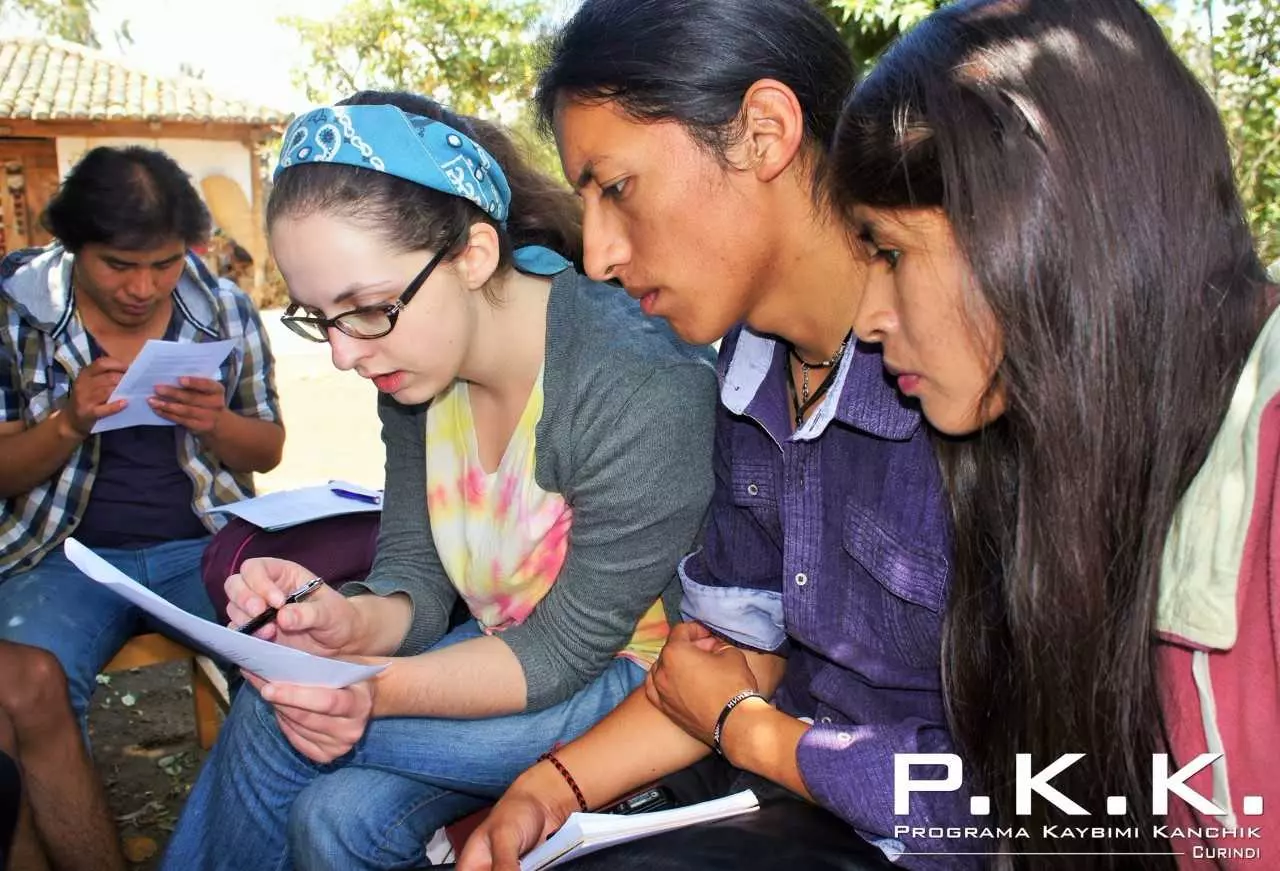

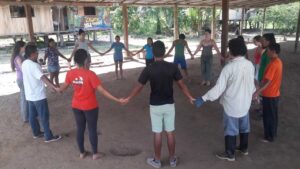
It was nightfall when I first stepped off the bus in Salasaca, a Kichwa town of the Ecuadorian Andes. Kichwa is an indigenous nationality and language. By invitation of the young adult leadership program, I would visit for the weekend and assist in English classes. Midnight of the first night, sharing Monopoly and a large bowl of motewith the strangers who would become my friends, I dominated one corner of the board and declared, “this is my corner!” Everyone laughed, I insisted they explain, and I learned I had referenced the title of a film about prostitution. I laughed, and I realized how much I’d changed.
In a vivid high school memory, an older friend explains why he loved living in Japan: he loved to make mistakes. He enjoyed constantly embarrassing himself to the amusement of all. To me, the prospect sounded mortifying and the absolute worst aspect of going abroad. Yet after four months in Ecuador, I had developed an appreciation for failure. I’d learned mistakes aren’t mortifying; they’re evidence of growth.
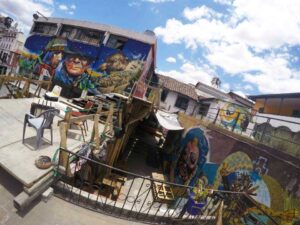
At an art collective in Quito, I helped prepare and eat lunch with the community before my twice weekly English lessons. One day Adyiz, a skilled chef, was cooking, and I was eager to assist and learn. Correctly assuming I knew nothing, she tasked me with the juice. As I questioned her about ajíand struggled to peel my first babaco, Adyiz appeared mystified by my inability to complete the most basic tasks of the Ecuadorian kitchen. After lunch, Adyiz had her first English lesson with me. She was self-deprecating and grateful for my encouragement. I told her, “I’m learning to cook; you’re learning English!” Adyiz apologized for her impatience earlier, and she opened up to me with moving stories of her life and philosophy.
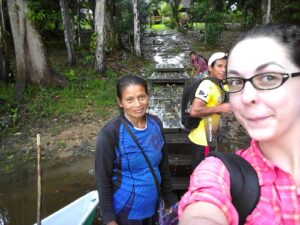
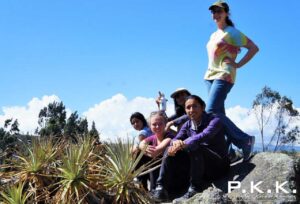
“Claudio! Mishki tanda! Kay tuta! Mikuna wasi!” (Claudio! Sweet bread! This night! Dining hall!) Claudio, laughing too hard to reply, thumbs-up-indicated he understood we would have cake that evening in the dining hall. Teaching English while studying Kichwa in the Amazon, I was always elated to employ my broken Kichwa. I hoped my public struggles to study a new language inspired my English students. I also hoped my decision to study Kichwa, an under-valued language and worldview conduit, helped to change attitudes. Teaching English, I empowered and responded to the requests of my host communities; I also contributed to the power and colonizing influence of English and its worldview. Reflecting on my role in the dynamics of language and power, I valued my broken Kichwa. If nothing else, it could earn the laughs of a kitchen of women as we washed dishes and cut onions.
Later, Marcia and Wayra (two Kichwa friends) and I traveled to make preparations for a cultural exchange project. In the city of Coca I pulled long hours organizing our notes and tasks. In the Kichwa community of Pañacocha the nature of my work changed, my role shifting from Coordinator to Likeable Gringa. In Pañacocha, I stepped back, observed, and tried to act appropriately. My work included, but was not limited to, drinking a fair amount of chicha(a traditional fermented drink). At one gathering, we were all brought bowls of chicha, and I intended to drink mine at the same pace as Marcia. When I saw Marcia cross the room to return her bowl, and Wayra do the same, I leaned to Wayra to ask, “I should drink all the chicha?” He said yes. The remaining chicha was quickly becoming more pulp and fibrous dregs and less appealing. Still, I swirled and gulped, swirled and gulped, determined to finish gracefully. Finally Marcia told me, “that’s enough.” I crossed the room, set down my bowl, saw the others’ bowls still containing several inches of liquid, and saw the shocked faces. A woman quietly exclaimed, “She drank it all!” I cursed Wayra, and we explained his prank. Everyone laughed, including myself.
Failure is funny, and humor is the universal language. Embarrassing errors and self-deprecating humor became my best tools for connecting with new people in new cultures. What’s more, to struggle and fail mean I’m doing something I’m bad at: I’m challenging myself. Consistent success is a sign of stagnation, of only exercising my strengths. To publicly and brazenly exercise my weaknesses represents authentic learning.
‘Student’ has always been my identity, and though I know how to succeed in academic study, I never knew how to hold a machete in my hand, how to hold Kichwa in my mouth, or how to dance dancehallor bachata. I most valued Ecuador for inviting me every day to grow beyond the confines of my comfort zone.
Emily Parker is a student at Juniata College and studied abroad with IFSA on the Rehearsing Change program in Quito, Ecuador in spring 2017.